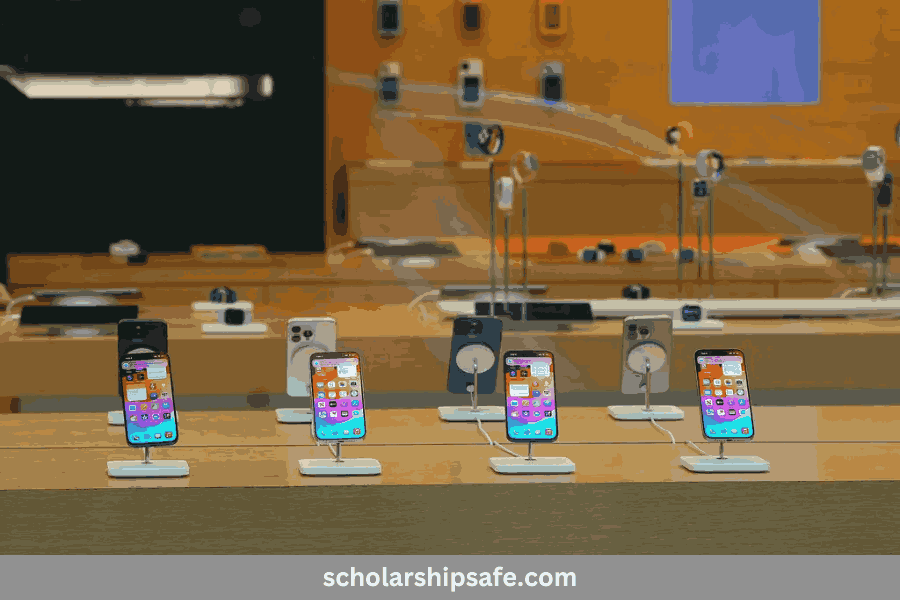In the rapidly evolving world of technology, artificial intelligence (AI) is at the forefront of innovation. From enhancing user experiences to transforming industries, AI has become integral to modern devices. One question remains, however: Can Apple’s iPhones pass the A.I. test? With fierce competition from Android manufacturers and a growing demand for smarter features, Apple’s AI capabilities are being scrutinized more than ever.
Apple’s History with AI Integration
Apple’s journey into AI integration has been deliberate and unique. Unlike some of its competitors who have placed AI at the heart of their marketing strategies, Apple has chosen a more subtle approach. The company’s focus has been on enhancing user experience through machine learning, which powers features like Face ID, Animoji, and Siri.
While Siri was one of the first virtual assistants to enter the market, it has lagged behind more advanced AI systems such as Google Assistant and Amazon Alexa. However, with iPhone updates and the introduction of the A15 and A17 Bionic chips, Apple has placed a stronger emphasis on improving Siri’s performance and other AI-driven capabilities. These chips, equipped with neural engines, allow for more sophisticated machine learning tasks to run directly on the device.
Also you can check;Concern Sparked Over New Linkin Park Singer and Alleged Scientology Links
How AI Powers iPhone Features
Apple’s AI isn’t just confined to Siri. Many iPhone features are heavily reliant on machine learning and AI to create seamless user experiences. Below are some of the key areas where AI plays a significant role:
- Face ID – Apple’s facial recognition technology is one of the most advanced in the world, using AI to map and recognize users’ faces in real-time, providing security and convenience.
- Camera Enhancements – AI plays a crucial role in enhancing the iPhone’s camera system. From Smart HDR to Night Mode and Deep Fusion, machine learning algorithms work to improve image quality by understanding the environment and adjusting settings automatically.
- App Suggestions & Personalization – The iPhone’s AI predicts user behavior to suggest apps, shortcuts, and even text suggestions in the keyboard. These machine learning models continuously learn from user interactions to provide better and more personalized suggestions.
- Health & Fitness Tracking – With the Health app and features like ECG monitoring, Apple uses AI to analyze health data and provide meaningful insights. The integration of machine learning helps users monitor their health in real-time, making AI a valuable tool in preventative care.
How Does Apple’s AI Compare to Android?
Apple has always positioned itself as a company focused on privacy, which has somewhat influenced its AI strategy. Unlike Android devices, which often rely on cloud-based AI, Apple’s approach ensures that much of the AI processing happens on the device itself. This edge computing method enhances privacy but sometimes comes at the cost of less sophisticated AI capabilities.
For instance, Google’s Pixel devices are known for their AI-driven photography enhancements, which many argue surpass the iPhone’s capabilities. Similarly, Google Assistant’s prowess in understanding complex commands and performing multi-step tasks leaves Siri in the dust.
However, Apple’s focus on user privacy, combined with incremental improvements to its neural engine, has led to steady advancements in AI performance. With the upcoming iPhone 15 models and improvements to iOS, there is optimism that Apple will continue to refine its AI offerings.
The Future of AI in iPhones
As AI continues to evolve, it’s clear that Apple is committed to integrating more advanced features into its iPhones. The development of on-device AI will likely lead to faster, more personalized experiences while preserving user privacy. Additionally, Apple is rumored to be working on AI-driven augmented reality (AR) capabilities, which could revolutionize how we interact with our devices in the coming years.
The real test for Apple’s AI will be whether it can compete with the likes of Google and Samsung, which have been more aggressive in pushing AI boundaries. Nevertheless, Apple’s emphasis on privacy, security, and user experience may give it an edge as AI becomes more deeply embedded in our everyday lives.
Conclusion: Can iPhones Pass the AI Test?
So, can Apple’s iPhones pass the AI test? While there’s no doubt that Apple’s AI technology is impressive, especially in areas like privacy and on-device processing, there are still areas where it lags behind its competitors. Siri’s ongoing improvements, enhanced camera features, and advanced machine learning capabilities show that Apple is making significant strides. However, with increasing competition, Apple must continue to innovate if it hopes to stay ahead of the curve in the AI race.

